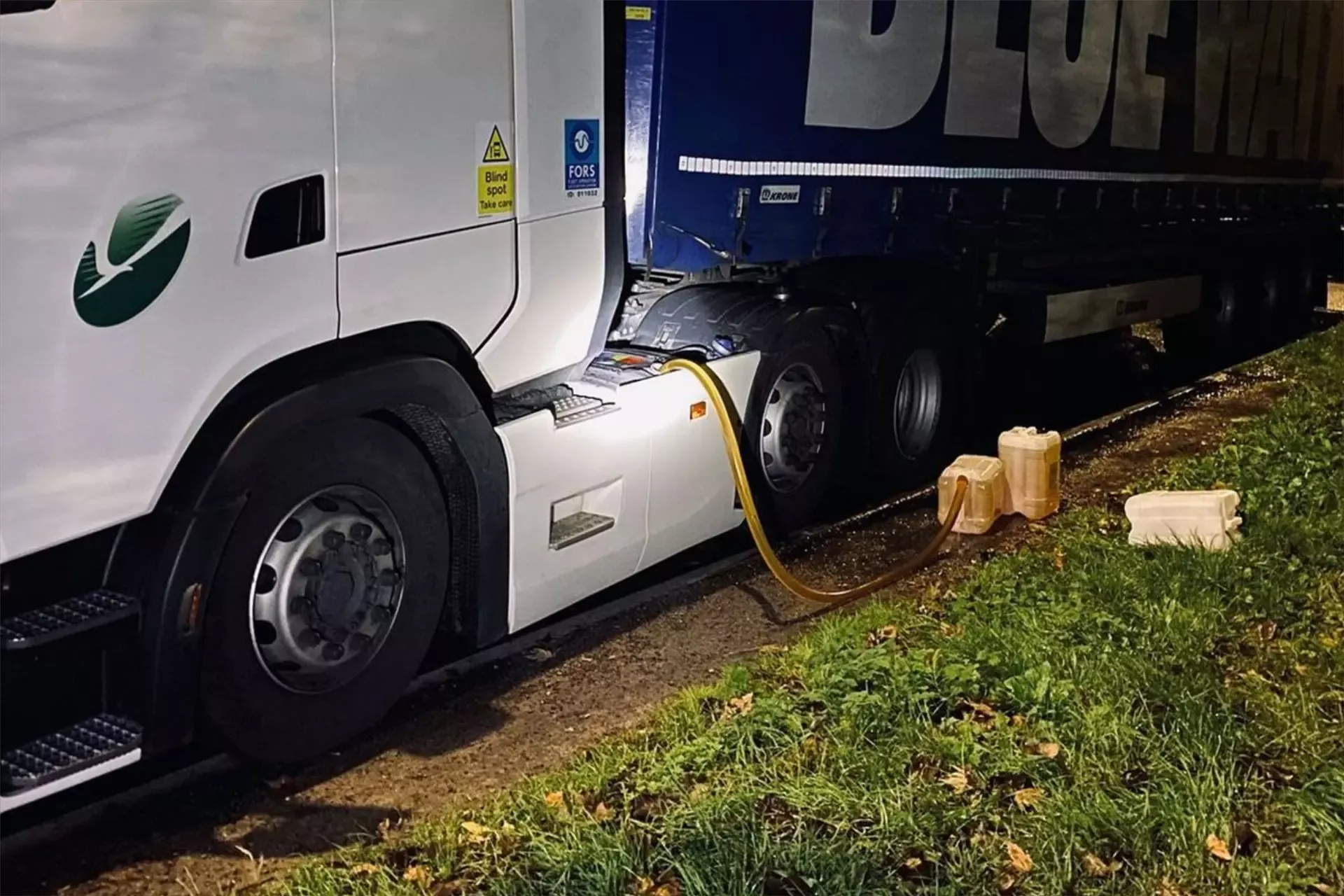
Freight crime continues to present major challenges for the supply chain industry. Theft of cargo consistently ranks among the top three concerns for TT Club’s Members, as evidenced by the Club’s claims data. However, analysis of claims data fails to capture the full scope of the problem, as incidents of cargo theft may remain below policy deductible and fuel theft is not an insured risk.
"Theft of cargo consistently ranks among the top three concerns for TT Club’s Members"
As inflation has driven up the cost of living, fuel prices have risen and remain high. High prices have in turn incentivised theft of a valuable commodity. Traditional market forces drive the emergence of shadow markets where buyers seek alternative, cheaper sources of essential commodities such as fuel. A long-haul truck may have two 500-litre tanks, making it a tempting target for thieves. Unlike consumer goods, which have barcodes and serial numbers, stolen diesel is very difficult to trace. It can be decanted and moved away quickly and easily, after which it is sold to willing buyers and consumed.
As businesses and transport operators have grappled with this problem, technological solutions have proliferated. Anti-syphon solutions are in common use in the industry, which prevent the syphoning of fuel. However, criminals have adapted and now commonly resort to drilling or otherwise puncturing the fuel tank to access the fuel inside. Such tactics compound the problem. Not only is the fuel stolen, but damaged vehicles must also be repaired. If the driver is unaware of the theft and attempts to start the vehicle engine, this may lead to costly damage to the engine of the vehicle in addition to the damage from the attack to the fuel tank itself and replacement of the fuel.
Often such thefts happen while the vehicle is parked during statutory breaks. This leads to significant delays since the load cannot be delivered until the vehicle is repaired or a replacement vehicle is sent to collect the load. This costs the business in terms of driver hours wasted, the potential cost of rebooking a failed load, as well as reputational damage.
In addition to the disruption caused by fuel theft incidents, there may also be a risk to the environment. Spillage of fuel during theft incidents is not uncommon, particularly in cases where thieves are interrupted after puncturing a tank. Such events may require the transport operator to arrange for costly clean-up of environmentally harmful diesel.
"Spillage of fuel during theft incidents is not uncommon"
As with other forms of freight crime, trucks at rest are at risk. Where vehicles must stop, operators are highly advised to make use of safe and secure parking locations. TT Club continues its mission to encourage increased security measures at truck parking facilities, which undoubtedly provide greater deterrence to criminals, whether their target is cargo or fuel. Unfortunately, truly secure truck parking facilities remain scarce in all nations, providing ample opportunity for criminals to strike. The greatest vulnerability occurs when trucks are parked for extended periods at the roadside or on industrial estates, and transport operators and drivers are strongly advised to avoid parking in such locations.
"TT Club continues its mission to encourage increased security measures at truck parking facilities"
Fuel theft has become increasingly common throughout the supply chain as diesel prices have risen and remained high. Despite the risk of damage, it is nonetheless advisable for operators to consider deploying anti-siphon technology and lockable fuel caps as deterrents. Most importantly, controlling parking locations as much as reasonably practicable, and avoiding parking at the roadside and on industrial estates, will help mitigate exposure to this risk. Such losses are often uninsured and will impact the operators' bottom line, emphasising the importance of considering available countermeasures and strategies.
Listen to the TT Talk podcast episode on this topic here: